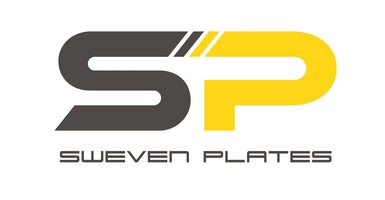
Here are some tips to help you maximise the lifespan and performance of your tyres:
Start with Quality Tyres
Choose reputable brands like Bridgestone, Continental, Goodyear, Michelin, and Pirelli, known for their high-performance and reliability. While these brands may come with a higher price tag, they often offer better durability and safety. If you drive frequently, investing in premium tyres is worthwhile. However, for infrequent or short-distance driving, budget brands can suffice. Check online reviews for budget brands that receive high praise, but beware of poorly made tyres that can compromise safety.
Think Twice About Used or Retreaded Tyres
Though cost-effective initially, used or retreaded tyres generally don't last as long as new ones and can be less safe. Despite regulations, many used tyres sold in the UK do not meet legal standards, with a significant percentage being dangerous.
Maintain Your Tyres Regularly
A regular maintenance routine can extend your tyres' lifespan and ensure safe driving. Some checks should be done weekly, while others can be done monthly or quarterly.
Know and Maintain the Correct Pressure
Refer to your car's manual or the information plate inside the driver's door for the recommended tyre pressures. Check them weekly. Incorrectly inflated tyres can lead to premature wear, reduced grip, higher blow-out risks, increased fuel consumption, and more noise. Carry a small, inexpensive tyre inflator in your car.
Inspect for Damage
When checking tyre pressures, look for embedded sharp objects, bulges, gouges, or exposed metal strands. If you find any damage, have the tyre inspected by a professional. Damaged tyres may be illegal, even if the tread is sufficient.
Monitor Tread Depth
Tyres must have at least 1.6mm of tread across the middle three-quarters of the width. Replace tyres when tread depth reaches 2mm to avoid legal issues and maintain safety. Driving with insufficient tread can result in fines and penalty points.
Check Wheel Alignment
Ensure your wheel alignment is checked during tyre replacements, MOT tests, or services. Misalignment can cause uneven and premature tyre wear.
Rotate Your Tyres
Rotate tyres to ensure even wear. This involves swapping tyre positions (front to rear, side to side, or both). Refer to manufacturer guidelines or consult a professional for proper rotation methods, as incorrect rotation can be unsafe. Goodyear recommends rotating car tyres every 6,000 miles and 4x4 tyres every 4,000 miles.
Drive Carefully
Avoid heavy braking, hard acceleration, fast cornering, overloading, and uneven weight distribution to prevent premature tyre wear. Avoid scraping kerbs, driving over potholes, or too close to the road edge, where grit can wear tyres unevenly.
Don't Neglect the Spare
Regularly check and maintain your spare tyre to ensure it's in good condition if needed.
Repair When Possible
Minor punctures in the tread area can often be safely repaired by professionals, and a properly repaired tyre should last as long as an undamaged one. However, sidewall damage is not legally repairable.
